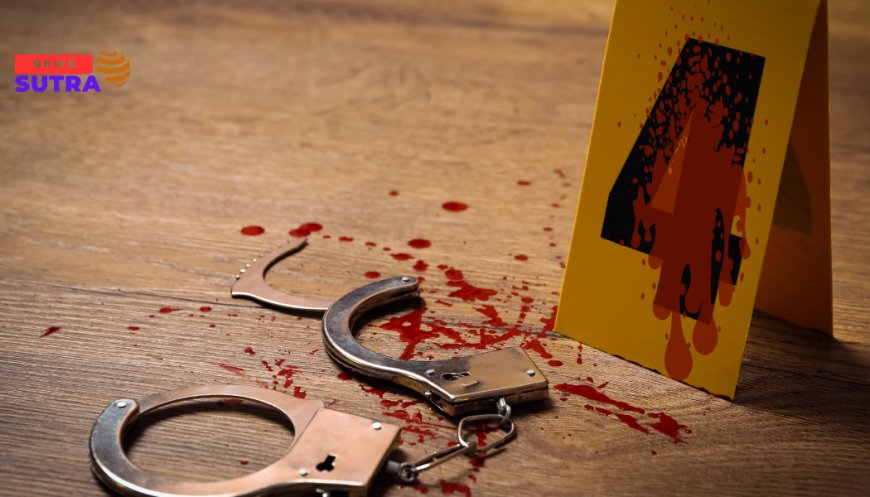Vaishnavi Hagawane Dowry Death Case: Key Co-Accused Arrested Amid Mounting Public Pressure
A major development in the Vaishnavi Hagawane dowry death case has emerged with the arrest of a prime co-accused. This article breaks down the timeline, legal implications, and the wider social impact of this high-profile case.

The tragic death of Vaishnavi Hagawane, a young woman allegedly driven to suicide due to persistent dowry harassment, sparked public outrage and renewed national conversation around India’s archaic dowry practices. After weeks of protests and media scrutiny, a significant breakthrough has occurred — a prime co-accused in the case has been arrested by law enforcement authorities.
The arrest has been hailed as a crucial step in a case that has come to symbolize the persistent challenges of gender violence and legal delay in India. Activists and legal experts believe this move could accelerate the prosecution process and pave the way for stronger deterrence in future dowry-related cases.
For a legal overview of anti-dowry laws in India, refer to India Code’s full text on the Dowry Prohibition Act, 1961.
Who Was Vaishnavi Hagawane?
Vaishnavi, in her early 20s, was a newly married woman from Maharashtra whose sudden and tragic death drew widespread media attention. Reports indicate that she was subjected to prolonged mental and physical abuse by her in-laws, allegedly over unmet dowry demands.
She reportedly died under suspicious circumstances, and while initially labeled a suicide, the family accused her husband and in-laws of foul play. Subsequent investigations supported the theory of dowry-related harassment, leading to the registration of a case under Section 304B (dowry death) and Section 498A (cruelty by husband or relatives) of the Indian Penal Code.
To understand how Section 304B operates in courts, read this detailed LiveLaw analysis on dowry death jurisprudence.
Recent Arrest: Who Is the Co-Accused?
The latest arrest involves a close relative of the primary accused — believed to have played an active role in instigating the dowry demands and reinforcing Vaishnavi's emotional trauma.
According to police sources, the co-accused had been evading arrest for several weeks by moving across district lines. A special task force, created following public protests, traced their location through mobile surveillance and arrested the individual from an undisclosed area in Pune district.
Authorities are currently interrogating the accused to uncover further details about the chain of events and potential involvement of additional family members.
For continuous updates on law enforcement actions, follow The Indian Express crime news section.
Legal Status: What Happens Next?
With this arrest, police are now preparing to file a supplementary chargesheet, strengthening their case under provisions related to:
-
Dowry Death (IPC 304B)
-
Cruelty (IPC 498A)
-
Abetment of Suicide (IPC 306)
According to legal experts, this case may become a landmark trial, especially if digital evidence such as text messages or voice recordings of harassment are presented.
“The key now is whether the prosecution can maintain a chain of causation between the harassment and the suicide,” said criminal lawyer Nandita Sharma, speaking to The Hindu. “Otherwise, the defense could argue for acquittal on grounds of lack of direct evidence.”
Learn more about women’s legal rights in dowry cases on National Commission for Women’s official portal.
Public Reaction: Outrage Turns Into Activism
The arrest has led to a renewed wave of activism both online and offline. Student groups, women’s rights organizations, and NGOs have held rallies demanding fast-track court hearings and harsher sentences for those convicted under dowry-related offenses.
On social media, the hashtag #JusticeForVaishnavi has trended frequently over the past month, highlighting a shift in public consciousness around crimes that were previously considered private family matters.
The All India Democratic Women’s Association (AIDWA) has called for an independent probe into the role of law enforcement officials who allegedly delayed registering FIRs when Vaishnavi’s family first approached them.
You can read AIDWA’s full statement on their official Facebook page.
Broader Implications: A Wake-Up Call for Society and Policy Makers
This case is more than just another entry in the crime blotter — it underscores the urgent need for social reform, police accountability, and judicial sensitivity in handling gender-based violence.
Despite decades of legislation, India continues to report over 6,000 dowry deaths annually, according to the National Crime Records Bureau (NCRB). Many of these cases are either dismissed due to lack of evidence or dragged out in overburdened courts.
Access the NCRB's latest report on crime against women here.
Activists are urging lawmakers to revisit outdated dowry laws and incorporate digital traceability, psychological support for victims, and automatic triggers for investigation when complaints are filed.
Conclusion: A Long Road to Justice
While the arrest of the co-accused in the Vaishnavi Hagawane dowry death case marks a significant milestone, the journey towards justice is far from over. The coming weeks will be crucial in determining whether the legal system can deliver timely justice and send a strong message against dowry-related crimes.
This case serves as a grim reminder that despite economic and educational progress, deep-rooted patriarchal norms still endanger the lives of countless young women across India.
As public pressure mounts, all eyes will remain on the judiciary and law enforcement to ensure that Vaishnavi’s story doesn’t fade into silence, but instead becomes a turning point in the fight against dowry violence.



















































